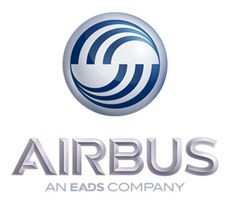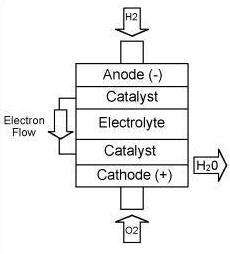Thu, Jun 23, 2011
Working Towards Greener Replacement For Ground, Airborne APU
Systems
 Based on its ongoing engagement
with global research programs, Airbus says it is extending the
scope of its fuel cell R&T activities by partnering with Parker
Aerospace to develop fuel cell technology as an alternative energy
source for on-ground and in-flight electrical power .
Based on its ongoing engagement
with global research programs, Airbus says it is extending the
scope of its fuel cell R&T activities by partnering with Parker
Aerospace to develop fuel cell technology as an alternative energy
source for on-ground and in-flight electrical power .
Within this partnership Airbus will be responsible for the
overall aircraft system architecture and technology integration
into the aircraft, and Parker will supply the multifunctional fuel
cell system and manage different subsystem suppliers.
The objective of the cooperation is the development of a
technology demonstrator followed by a joint flight test campaign
for the middle of the decade, including operational and
infrastructural tests. With Parker Aerospace involved in the
project from this earliest phase, industrialisation can be
considered throughout the development of the process, rather than
at the end.
“Airbus is pursuing engagement of competent industrial
research partners in the field of fuel cell applications,”
says Axel Krein, Senior Vice President Research & Technology at
Airbus. “With Parker Aerospace we have a strong partner with
excellent competencies in multifunctional system integration. Their
engagement in this research activity underlines the potential of
fuel cell technology as an alternative energy source for electrical
on-board power generation. Together we are now entering a joint
development phase, bringing fuel cell research activities for our
industry on a global level and shape the future of the next
generation of eco-efficient airplanes.”
“Parker is pleased to be recognized by Airbus for our
broad technology competency,” said Mark Czaja, Group Vice
President of Technology and Innovation for Parker Aerospace.
“Airbus is an industry leader in the implementation of
eco-efficient fuel cell technologies for aircraft. By leveraging
our integration capabilities across the many aircraft systems we
develop, together we can advance aircraft fuel cell technology in
support of this game-changing flight test demonstration
program.”

Together with its research partners, Airbus successfully
performed the first flight test on a civil transport aircraft in
2008, where a fuel cell system provided power for the
aircraft’s back-up systems. As a next step, Airbus is
currently investigating the application of multifunctional fuel
cells as a replacement for the Auxiliary Power Unit (APU) to power
any electrical consumer of the aircraft, e.g., the cabin. This
would enable the replacement of ground power units leading to an
emission free ground operation and significantly reduce mission
fuel consumption.
More News
Terminal Radar Service Area Airspace surrounding designated airports wherein ATC provides radar vectoring, sequencing, and separation on a full-time basis for all IFR and participa>[...]
Very High Frequency (VHF) The frequency band between 30 and 300 MHz. Portions of this band, 108 to 118 MHz, are used for certain NAVAIDs; 118 to 136 MHz are used for civil air/grou>[...]
“From approximately November 2021 through January 2022, Britton-Harr, acting on behalf of AeroVanti, entered into lease-purchase agreements for five Piaggio-manufactured airc>[...]
Also: Virtual FLRAA Prototype, IFR-Capable Autonomous A/C, NS-32 Crew, Golden Dome Missile Defense Bombardier announced that the first production Global 8000 successfully completed>[...]
Aero Linx: The 1-26 Association (Schweizer) The Association’s goal is to foster the helpfulness, the camaraderie, and the opportunity for head-to-head competition that is fou>[...]
 ANN's Daily Aero-Term (05.29.25): Terminal Radar Service Area
ANN's Daily Aero-Term (05.29.25): Terminal Radar Service Area ANN's Daily Aero-Term (05.30.25): Very High Frequency (VHF)
ANN's Daily Aero-Term (05.30.25): Very High Frequency (VHF) Aero-News: Quote of the Day (05.30.25)
Aero-News: Quote of the Day (05.30.25) Airborne 05.23.25: Global 8000, Qatar B747 Accepted, Aviation Merit Badge
Airborne 05.23.25: Global 8000, Qatar B747 Accepted, Aviation Merit Badge ANN's Daily Aero-Linx (05.30.25)
ANN's Daily Aero-Linx (05.30.25)




